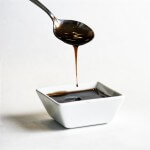 Along with the single-celled green algae chlorella, spirulina is one of the most widely-studied foods on the planet. In fact, studies in the last decade alone have shown that the regular consumption of spirulina can enhance brain function, improve white blood cell count, stimulate antibodies, boost liver health, and more. Spirulina can also help remedy almost any nutrient deficiency due to its incomparable concentrations of vitamins and minerals.
Along with the single-celled green algae chlorella, spirulina is one of the most widely-studied foods on the planet. In fact, studies in the last decade alone have shown that the regular consumption of spirulina can enhance brain function, improve white blood cell count, stimulate antibodies, boost liver health, and more. Spirulina can also help remedy almost any nutrient deficiency due to its incomparable concentrations of vitamins and minerals.
A study published in the March-April 2014 issue of the Annals of Hepatology, however, has given us another reason to love spirulina: It contains a number of bioactive compounds that can help treat one of the most aggressive and feared cancers of all – pancreatic cancer.
Substantial Results
The Czech researchers sought to determine the anticancer effects of spirulina when they realized that it contained large numbers of tetrapyrrolic compounds, a class of chemical compounds that are closely related to the cancer-fighting antioxidant bilirubin. Consequently, they decided to test the effects of these compounds – specifically, phycocyanobilin and chlorophyllin – on both human pancreatic cancer cell lines and mice that were suffering from pancreatic cancer. All test subjects were treated with one of the following doses in vitro: 0.16 g•L-1 of spirulina, 60 μM of phycocyanobilin, or 125 μM of chlorophyllin. The researchers also monitored a control group comprised of untreated cells.
After the test period was over, the results were undeniable: Compared to the control group, all subjects that were treated with the spirulina or its tetrapyrrolic compounds demonstrated significant anti-proliferative activity, with phycocyanobilin proving to be the most effective of the compounds. “In conclusion, [spirulina] and its tetrapyrrolic components substantially decreased the proliferation of experimental pancreatic cancer,” the researchers reported. They proceeded to recommend spirulina as a dietary supplement for its “chemopreventive role.”
Choosing the Best Spirulina
If you’re suffering from a disease (cancer or otherwise) and aim to treat it with spirulina, it’s important to understand that algae is one of those foods that needs to be sourced very carefully. Like chlorella, spirulina is basically a freshwater sponge that absorbs everything in its nearby environment – good and bad. Therefore, it’s essential that your spirulina is obtained from a clean source, and “certified organic” doesn’t necessarily mean that it’s clean. As a general rule, spirulina from the United States (especially Hawaii) and Europe tends to be cleaner than spirulina from Asia, while spirulina from China remains the most contaminated.






